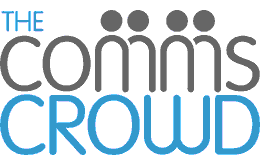The Power of the Podcast
Time to read: 2 minutes
We look at how podcasts are rapidly becoming the favourite child in the B2B marketing class of 2019.
Podcasts are thriving in the UK, nearly 6 million people now tune in each week, according to a survey from Ofcom (September 2018) – with the number of weekly podcast listeners having almost doubled in five years – from 3.2 million in 2013 to 5.9 million in 2018.
While podcasts were traditionally created with consumers in mind, now thanks to the tech evolution, brands large and small are getting in on the action.
They may not quite be the new op-ed, but their soaring popularity has seen many B2B publications introduce podcasts to their websites. Be it paid for ops, interview placements or the opportunity to submit pre-recorded material, the rise of the podcast is certainly opening new avenues to B2B PR professionals like us looking to get clients seen, or in this case, heard.
So should your client be hopping on the podcasting bandwagon?
While podcasts are relatively easy to make, producing and managing a regular branded podcast is a big commitment, and not something I would recommend to any client taking their first steps into the realm of podcasting. Clients need to think realistically about how much time they can dedicate to recording, and the frequency with which they can publish content. The key to podcasts is consistency – if you want to be effective, you should offer something that listeners can tune into regularly.
 Our advice
Our advice
Our recommendation is to make podcasts part of your existing PR and marketing and strategy, complementing other activity. As PRs, we should familiarise ourselves with existing podcasts in our client’s sector, in our case, technology. We should then be engaging with these, and the editors producing them, to establish the opportunities available, such as guest speaker slots, or themes of the month with which clients may be able to get involved. You should then monitor these, and invest time in pitching for slots, or establishing if there are ongoing opps to submit client speakers, or even submit pre-recorded material on a regular basis.
The great thing about podcasts, other than ease of production, is that you don’t necessarily need to duplicate on content as you can utilise written articles as topics for discussion and kill two birds with one stone. In addition, is the advantage of longevity since content can be listened to time and time again.
As PR consultants, we should certainly be looking for opportunities for clients to contribute to podcast conversations (as we do with all other forms of media). It allows the speaker to convey information in a manner much more interactive and engaging than simply words on a page. We should be encouraging clients to augment their PR strategies with podcasts and start honing their broadcast skills in preparation.

